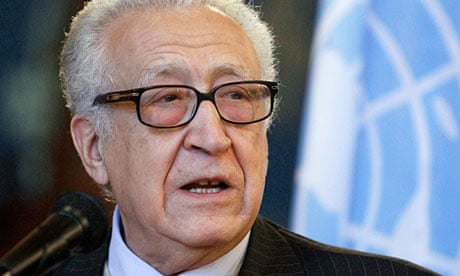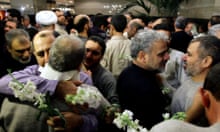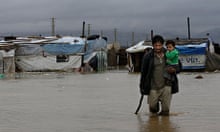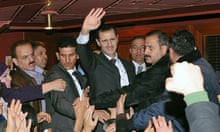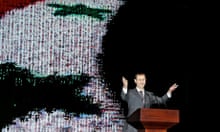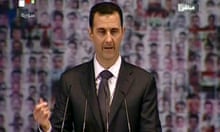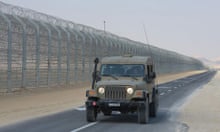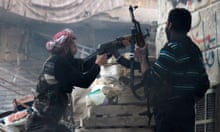The international envoy to Syria has warned that as many as 100,000 people could die in the next year if a way cannot be found quickly to end the country's civil war.
Lakhdar Brahimi, the UN-Arab League envoy for the Syrian crisis, told reporters in Cairo on Sunday that if the crisis continued Syria would not be divided into states "like what happened in Yugoslavia" but would face "Somalisation, which means warlords, and the Syrian people will be persecuted by those who control their fate".
Syrian rebels have been fighting for 21 months against President Bashar al-Assad's regime. Activists say more than 40,000 people have been killed in the crisis, which began with pro-democracy protests but has morphed into a civil war.
Since starting his job in September, Brahimi has sought to advance an international plan, reached in Geneva six months ago, that calls for an open-ended ceasefire between rebels and government troops, and the formation of a transitional government to run the country until elections can be held.
Over the past week Brahimi has visited Damascus, where he met Assad, and Moscow, one of Syria's closest international allies, where he discussed ways of ending the country's crisis.
"The situation in Syria is bad. Very, very bad," Brahimi said after meeting Arab League chief Nabil Elaraby. "It is getting worse and therefore if nearly 50,000 were killed in nearly two years if, God forbids, this crisis continues for another year, it will not only kill 25,000. It will kill 100,000. The situation is deteriorating."
The monthly death toll in Syria has risen recently as both sides have used heavier weapons and the Syrian army has started using its warplanes to attack rebel-held areas around the country.
Brahimi said peace and security in the world would be threatened directly from Syria if there was no solution within the next few months. "I warn of what will come. The choice is between a political solution or of full collapse of the Syrian state."
Asked if there was any willingness by Assad and the opposition to go into a political process, Brahimi said, "No, there isn't. This is the problem." He added that the two sides don't talk to each other and help from outside was needed.
Brahimi hinted that the Geneva plan might be adopted by the UN security council, saying, "We have a suggestion and I think that this suggestion will be adopted by the international community."
The Geneva plan was reached in international conferences this summer and has the backing of Russia and China, which have shielded Damascus, as well as the west.
But neither side within Syria appears interested. The rebels reject any efforts that do not call for the ouster of Assad, and Assad's government is unlikely to give up power voluntarily. It is unclear if security council backing would significantly increase the pressure on either side to support it.
In Syria, activists reported violence in areas ranging from the northern provinces of Idlib, Aleppo and Raqqa to the capital Damascus and its suburbs, to the central regions of Hama and Homs, to Daraa in the south.
Activists said Syrian rebels captured an oil pumping station in the north of the country after days of fighting. The Local Co-ordination Committees and the British-based Syrian Observatory for Human Rights (SOHR) said the rebels captured the station in Raqqa on Sunday.
Rami Abdul-Rahman, who heads SOHR, said the station receives crude oil from the nearby province of Hassakha then pumps it to Homs, to one of Syria's two oil refineries.
Rebels have in the past months captured several oil fields in the eastern province of Deir el-Zour that borders Iraq. SOHR said the rebels also captured a military post that used to protect the station.
SOHR also reported that rebels fought battles with Syrian troops near the border with Jordan and around a major military industrial area in the town of al-Safira in Aleppo. It added that rebels shot down a helicopter in Idlib, in the north-west.
